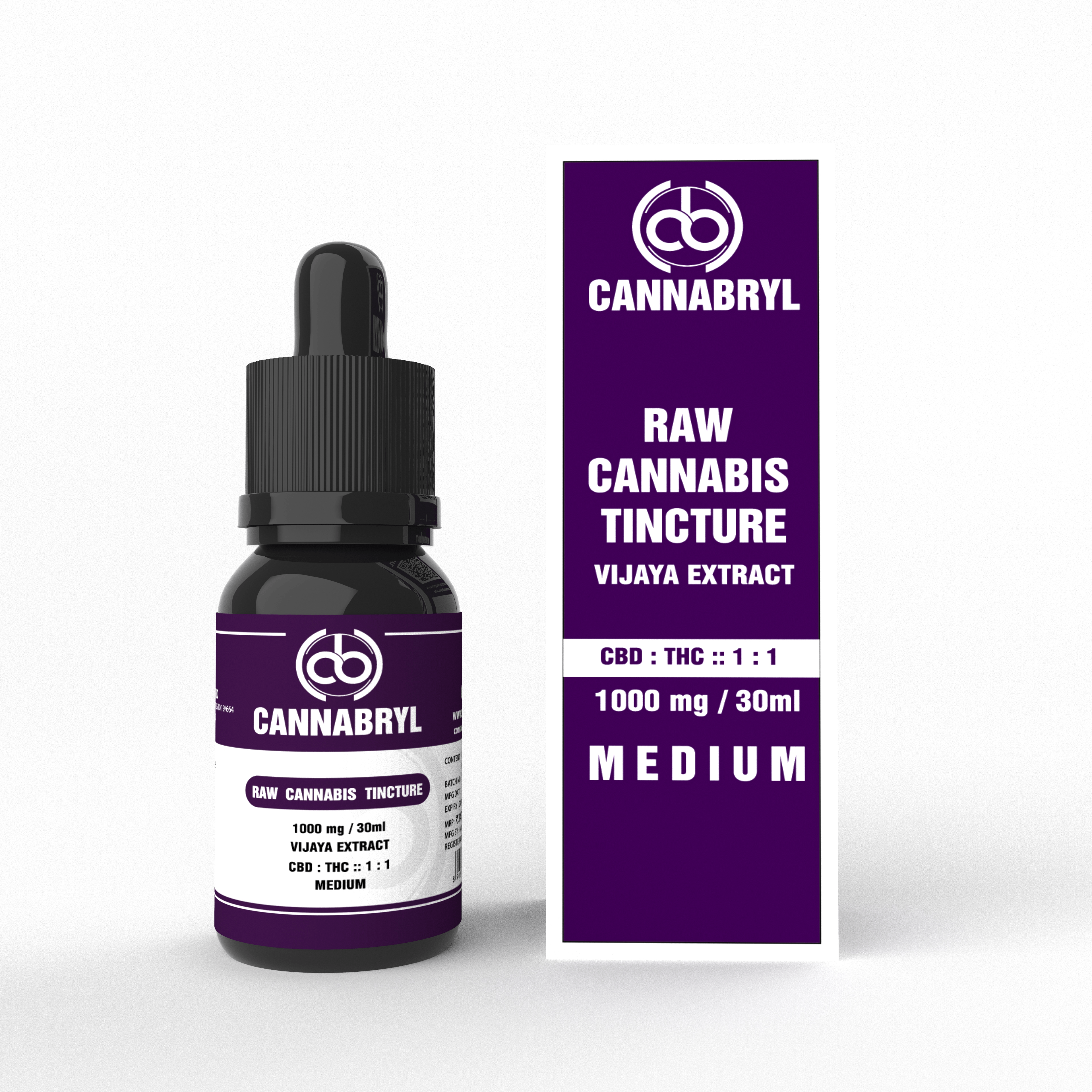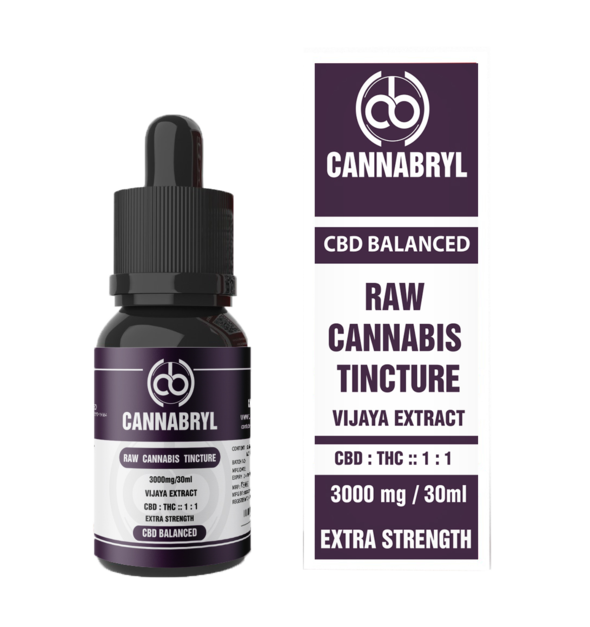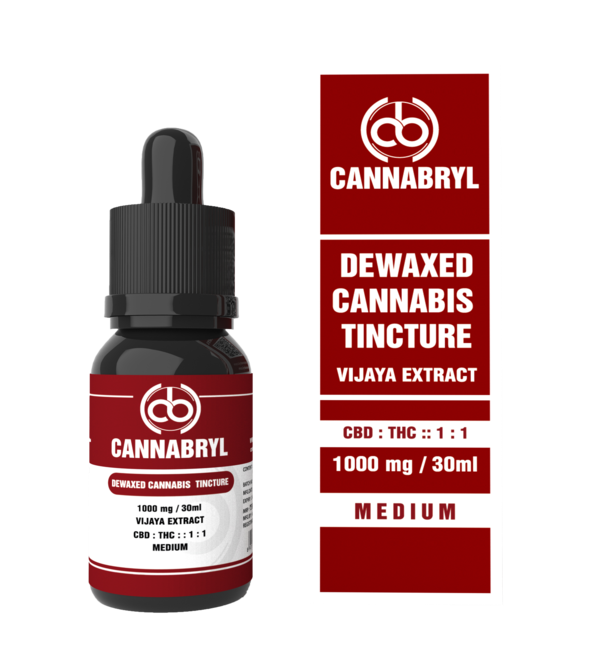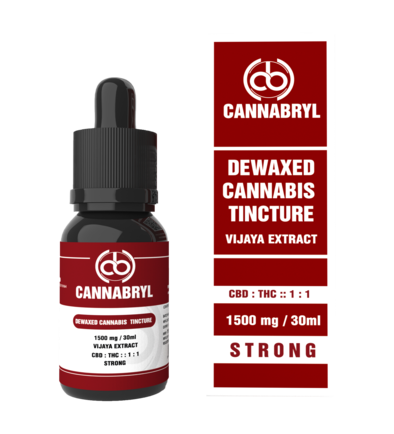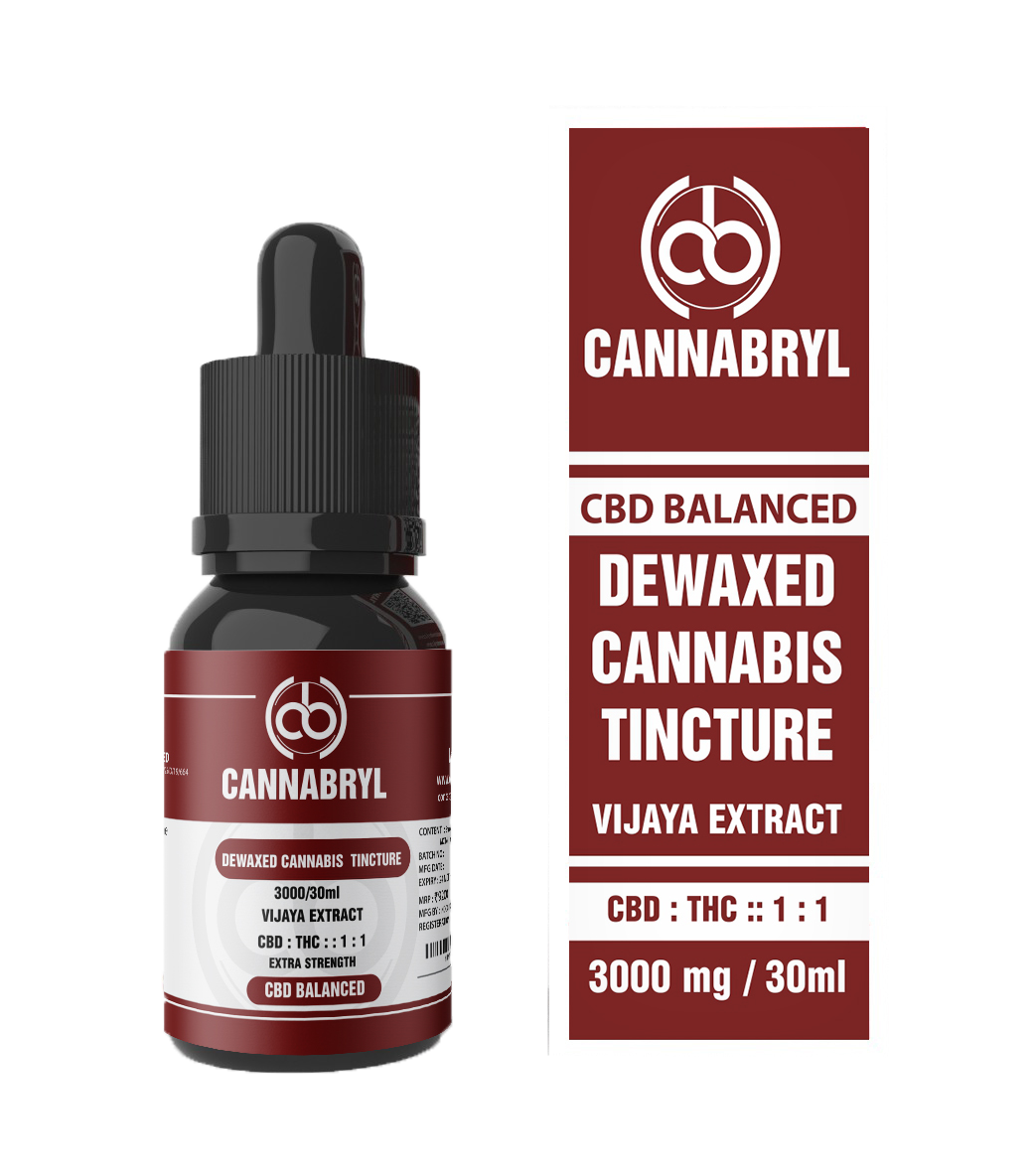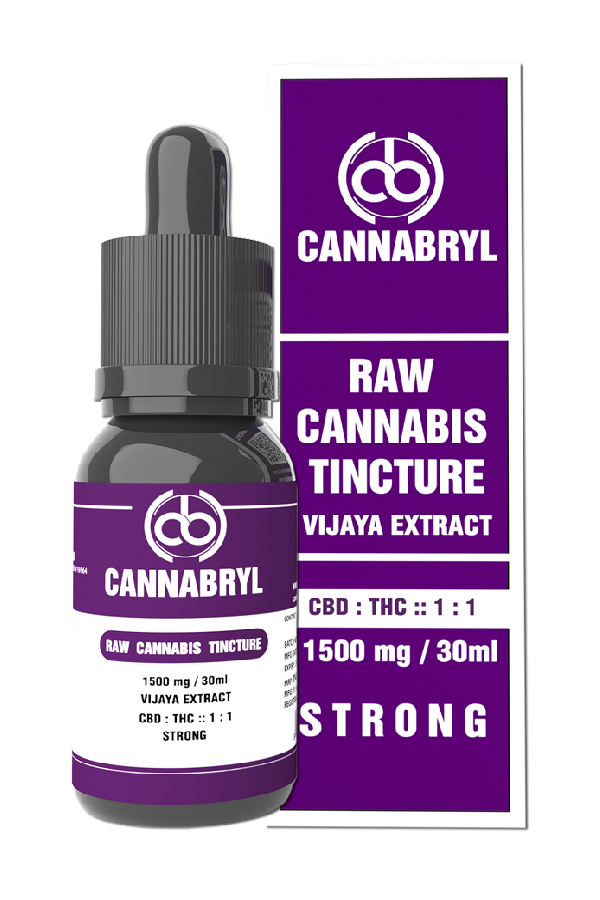**Cannabryl Products will be shipped directly to you by the company.**
**There is a 200/- delivery charge that the company charges for the delivery**
Raw Medical Cannabis Tinctures / Whole plant medical cannabis Tinctures / Full spectrum raw medical cannabis Tinctures— are some of the terms which are interchangeably used for Raw Medical Cannabis Tinctures.
Cannabis Tincture is a homogenized (Each drop is the same across the solution) mixture of Cannabis extract along with a medicinal-grade MCT oil (C8 chains of medium-chain triglycerides), this needs to be 100% Coconut Derived. MCT oil increases the bioavailability (pace of absorption in the body) of cannabinoids by faster absorption and higher permeability. This acts in the same way as Honey if taken with any Ayurvedic medicine increases its bioavailability of the medicine in the body.
Raw means cannabis is unheated, or “non-activated,” cannabis. This means that it has not been through a process called decarboxylation, which means Medical extract or raw cannabis dried biomass has not undergone a chemical process as a result of heating over time. The Raw cannabis extracts if prepared in a proven scientific way will certainly contain below detailed Terpenes, flavonoids, cannabinoids. The raw extract contains CBD & THC in limited quantity, but a larger chunk of CBDA and THCA is also present. A sufficient amount of CBG is present too, CBG is the pre-stage of CBN. Just because of the presence of all the Phytochemicals known or unknown, proven scientifically or unproven are definitely present in the extract along with Plants’ natural waxes, Lipids, and chlorophyll. We normally correlate the term of Full-spectrum to white light wherein all colors possible are present.
Tinctures are a great way to modulate formulations according to the desired strength. They are less concentrated than extracts and are more dilute, which can be easily be dispensed through a glass dropper. There is no major therapeutic difference between the extract and Tinctures, it’s more of a personal preference of dispensing and severity of the condition. For Example, if you have an acute disease or chronic pain, the doctor may prescribe a more potent extract than a tincture however if the condition is mild like a sleep disorder, you will most probably be prescribed only the mild potency of the tincture.
Drop Count per 30 ml of Tincture Table:
| 30 ml of Tincture has 720 drops of Oil |
| 1.0 ml of Tincture has 24 drops of Oil |
| 0.50 of Tincture has 12 drops of Oil |
| 0.25 ml of Tincture has 6 drops of Oil |
Medicinal Count per 30 ml of Tincture Table:
| 1000 MG | 1500 MG | 3000 MG |
| 30 ml has 500 mg of CBD + 500 mg of THC | 30 ml has 750 mg of CBD + 750 mg of THC | 30 ml has 1500 mg of CBD + 1500 mg of THC |
| 1.0 ml has 16.6 mg of CBD + 16.6 mg of THC | 1.0 ml has 25 mg of CBD + 25 mg of THC | 1.0 ml has 50 mg of CBD + 50 mg of THC |
| 0.50 ml has 8.33 mg of CBD + 8.33 mg of THC | 0.50 ml has 12.5 mg of CBD + 12.5 mg of THC | 0.50 ml has 25 mg of CBD + 25 mg of THC |
| 0.25 ml has 4.16 mg of CBD + 4.16 mg of THC | 0.25 ml has 6.25 mg of CBD + 6.25 mg of THC | 0.25 ml has 12.5 mg of CBD + 12.5 mg of THC |
CBDa against inflammation
Laboratory research in controlled environments outside of a living organism has shown that CBDa has potential anti-inflammatory properties, due to the inhibition of COX-2 (cyclooxygenase) activity. COX-2 is expressed by cells that are involved in inflammation and have emerged as the isoform primarily responsible for the synthesis of prostanoids (PG – a group of complex fatty acids) involved in acute and chronic inflammatory states of pathological processes. Classical nonsteroidal anti-inflammatory drugs (NSAIDs) have been shown to inhibit both COX-1 and COX-2 activities. Inhibition of COX-2-dependent PG synthesis accounts for the anti-inflammatory and analgesic effects of NSAIDs, whereas suppression of COX-1 can lead to many unwanted side effects. Thus, it has been assumed that specific inhibitors for the COX-2 enzyme might have ideal therapeutic actions, similar to those of classical NSAIDs, without producing any adverse effects, caused by the inhibition of COX-1 activities.
CBDa as Anti-epileptic Drug
In a patent registered in 2015 by GW Pharma, the anti-seizure effect of CBDa has been studied and explained. Having already a CBD-based drug for treating rare types of epilepsy, such as Dravet Syndrome, the company noticed some limitations, such as the poor bioavailability of the product and its need to be administered at high dosing.GW Pharma has found that by adding lower amounts of CBDa the therapeutic effect of the drug was more potent, in terms of faster action and stronger effect, and less likely to cause side effects. Moreover, it had a superior bioavailability, which they suggested could mean a quicker onset of the effects. In fact, the company envisages combining both cannabinoids as an anti-epileptic drug, as CBDa may be useful in providing a rapid onset effect, whereas CBD may be useful in providing an extended effect.
CBDa may help with Anxiety and Depression
CBD’s anti-anxiety effects have been much remarked on by many studies on humans with social anxiety and depression. Like CBD, CBDa activates the serotonin 5- HT1A receptor, also known to modulate feelings of well-being and anxiety. In a study, conducted on rats and published on European Neuropsychopharmacology, was shown that CBDa provided antidepressant effects at doses 10-100 times smaller than CBD, but further researches on humans are needed.
Cannabinoid acids (THCa and CBDa) in Cancer treatment
CBDa has lately shown possibilities to inhibit cancer growth. The link between cancer and the acid form of CBD was demonstrated in a study of 2012 on breast cancer cells. In this study was explained that CBDa can be involved somehow in cancer growth through the suppression of the COX-2 enzyme, a major instigator of breast cancer metastasis, as well as other forms of tumors. In similar ways, both THCa and CBDa have shown their anti-inflammatory effects, which make them a potential cancer-killer. A Swedish study of 2011 on the evaluation of six different cannabinoids, including also their acid forms, found that all six of these substances together provided a strong effect on inflammatory processes in laboratory colon cancer cell lines. They have shown that through the interference with the inflammatory process, they are able to inhibit cancer cell proliferation.

